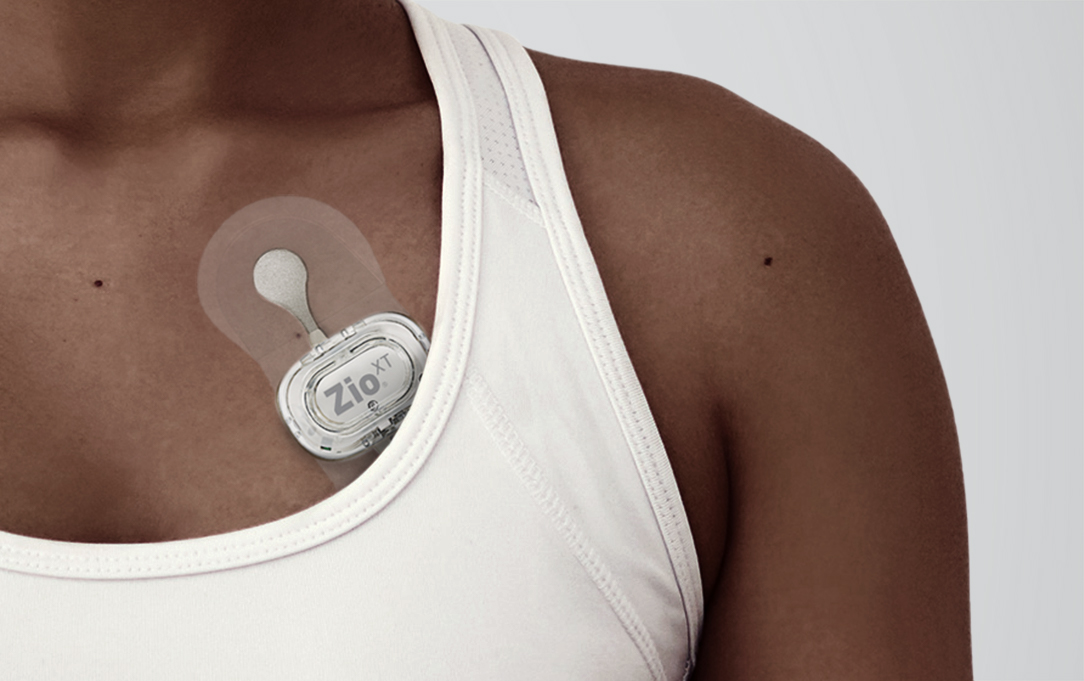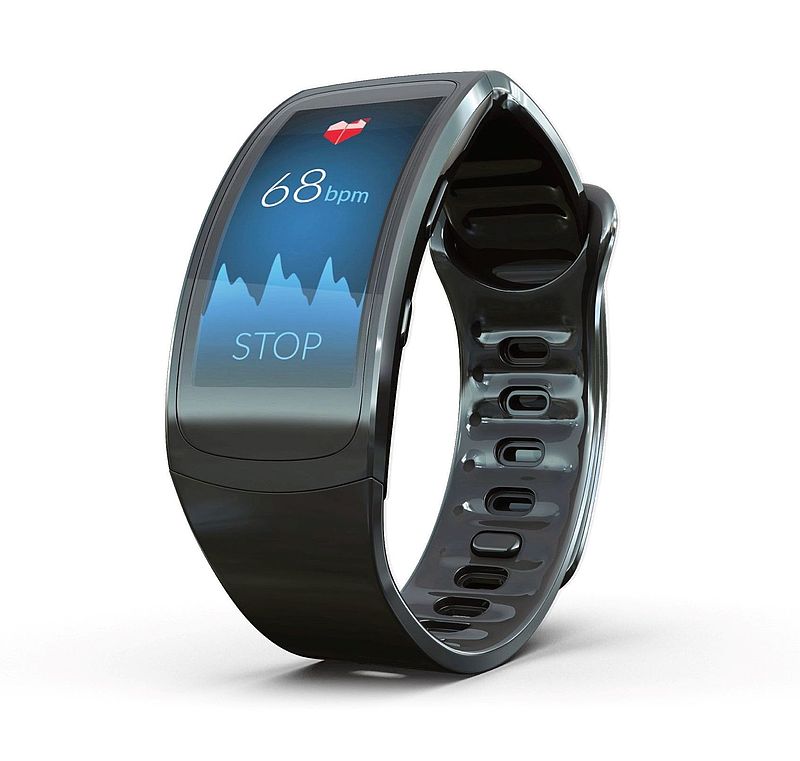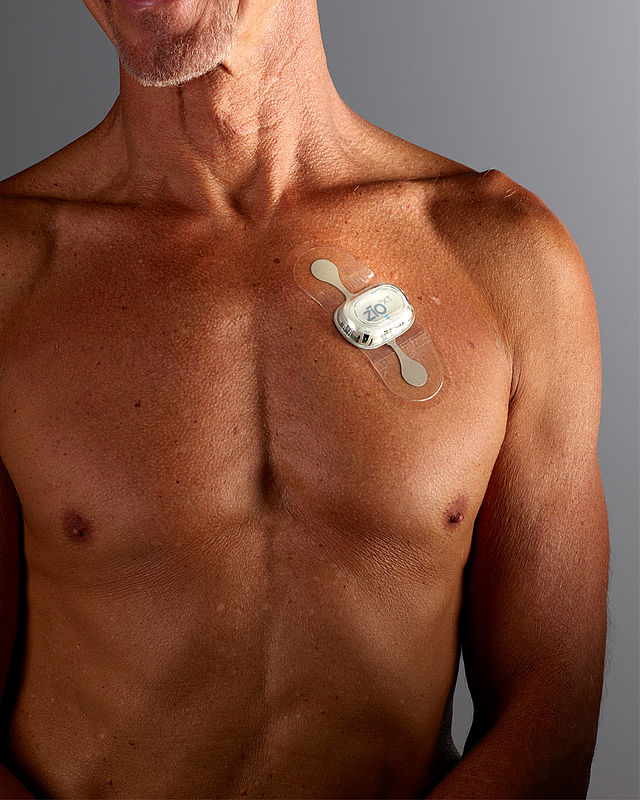Atrial fibrillation is a heart rhythm disorder that affects over 30 million people worldwide. The irregular heartbeat can cause blood in the heart's upper chambers – known as the atria - to clot. If such a clot gets into the brain and blocks blood vessels, this can cause a stroke. In older people, atrial fibrillation is one of the most common causes of stroke.
Often, atrial fibrillation does not cause any symptoms and goes undetected. "The hope is that if we can better detect 'silent' atrial fibrillation, more people could be treated early, and strokes may be prevented," says Canadian study leader Dr David Gladstone from Sunnybrook Health Sciences Centre and the University of Toronto. The study was coordinated at the Population Health Research Institute in Hamilton, Canada.
The multi-centre, randomised trial, called SCREEN-AF, studied a wearable heart monitor that sticks to the skin, recording every heartbeat and can detect so-called 'silent' atrial fibrillation – atrial fibrillation with no symptoms. The study involved 856 people from 48 GP practices between 2015 and 2019. Participants were 75 years or older and had high blood pressure but no known atrial fibrillation.
Half of the participants received the wearable heart monitor. It was applied to the chest twice for a fortnight at a time. The other half received standard medical care. The device can continuously measure and record someone's heart-beat for a fortnight, after which time it is removed and the data analysed. All participants were followed for six months.
Blood thinners can protect against strokes
The study found that the participants were able to use the device, and that atrial fibrillation was detected ten times more often than in the control group. One out of every 20 patients in the study group was diagnosed with atrial fibrillation. As a result, 75 per cent of those patients were subsequently prescribed blood-thinning medication to protect against strokes.
"The episodes of atrial fibrillation we found were usually several hours long. Blood thinners are generally very effective drugs in those with atrial fibrillation and can reduce stroke risk by almost 70 per cent. However, for the patients we identified, the best possible therapy has not yet been found" says co-study leader Prof. Dr Rolf Wachter* from the Heart Center of the University Medical Center Göttingen and the German Centre for Cardiovascular Research (DZHK), Göttingen site.
Around one-third of the participants were contacted in Germany via GP cooperation practices of the DZHK partner institutions Göttingen and Hamburg. "GP practices are ideal partners for future studies on atrial fibrillation screening," adds Prof. Dr Eva Hummers from the Institute of General Medicine at the University Medical Center Göttingen. She led the collaboration with the GP practices.
Atrial fibrillation can be dangerous because it can cause blood clots to form and lead to a stroke. Worldwide, stroke is the second leading cause of death in adults and a significant cause of disability and dementia.
"Improving the diagnosis of atrial fibrillation and finding new treatment options is one of the research priorities at the German Centre for Cardiovascular Research. The results of the SCREEN-AF-DZHK15 study make an important contribution to this," says Prof. Dr Stefanie Dimmeler, spokesperson for the DZHK Board of Directors.
*Rolf Wachter has been Professor of Clinical and Interventional Cardiology at Leipzig University Hospital since 2019.
Study: Home-Based Screening for Early Detection of Atrial Fibrillation in Primary Care Patients Aged 75 Years and Older SCREEN AF
The part of the trial conducted in Germany SCREEN-AF-DZHK15 uses the clinical research platform of the DZHK.
Scientific publication: Screening for Atrial Fibrillation in the Older Population. A Randomized Clinical Trial. David J. Gladstone, Rolf Wachter, Katharina Schmalstieg-Bahr, et al.: JAMA Cardiol., February 24, 2021, Doi:10.1001/jamacardio.2021.0038
Funding: This study was funded by the Canadian Stroke Prevention Intervention Network (CSPIN) and the German Centre for Cardiovascular Research (DZHK), supplemented by funding from Boehringer Ingelheim and in-kind contributions from Microlife Corporation, ManthaMed and iRhythm Technologies Inc.
Scientific contact in Germany: Prof. Dr. med. Rolf Wachter, Universitätsklinikum Leipzig, Klinik und Poliklinik für Kardiologie, Rolf.Wachter(at)medizin.uni-leipzig.de
Press contacts: Christine Vollgraf, DZHK press office, phone.: +4930 3465 52902, christine.vollgraf(at)dzhk.de | Stefan Weller, Corporate Communications, Universitätsmedizin Göttingen (UMG), phone: +49551 / 39-61020, presse.medizin(at)med.uni-goettingen.de
More pictures for download
The photos posted here may only be used for journalistic reporting and are free of charge if the photographer is named.





